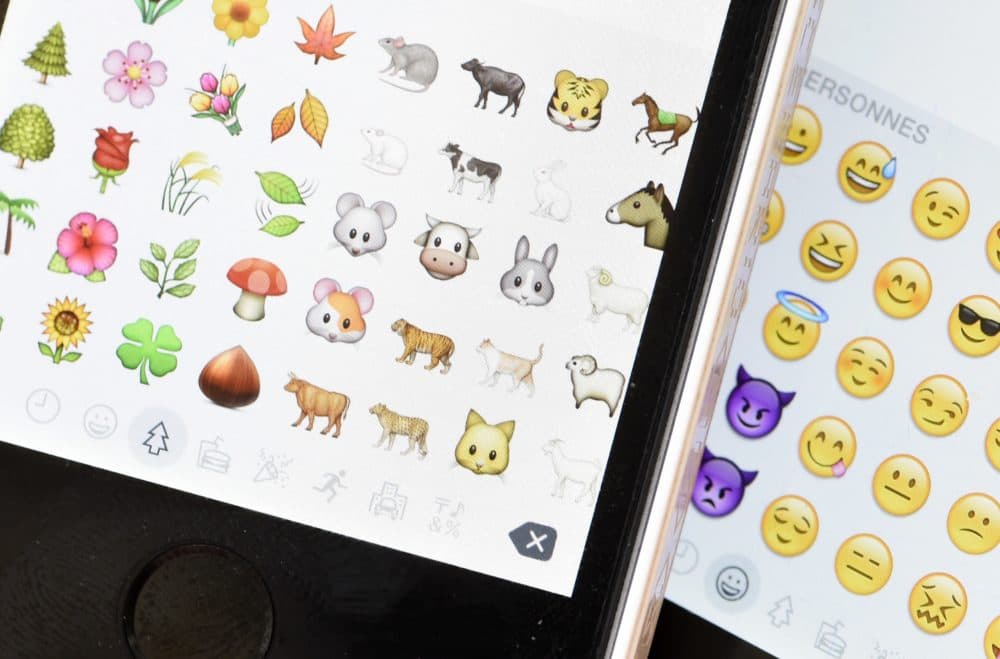Advertisement
Gen Z Consulting Firm Caters To Companies Hoping To Go From Brand To Bae
Resume
There are now consulting firms to help brands and companies trying to reach Generation Z, the generation following millennials that consists of young people born from the mid-1990s through the early 2000s.
Here & Now's Robin Young talks with Princeton University sophomore Nick Jain (@JUVConsulting) about JÜV Consulting, run by high school and college students with the goal of providing brands with insights into youth culture.
"At the end of the day, what it comes down to is that we live in a world where a lot of people are making decisions about Gen Z that affect Gen Z, but they're not talking to teenagers," Jain says.
Interview Highlights
On first becoming interested in how people try to reach Gen Z
"I found myself a couple of years ago at a couple White House roundtables ... I did an internship with the Muslim Public Affairs Council the summer after my junior year in high school, because in my school I noticed this increasing sense of Islamophobia and I really wanted to do something to combat that.
"There was a day that they invited me to come to a White House roundtable with the focus being tackling discrimination in schools. But then, when I was sitting in the room and we're talking about how to reduce discrimination in schools, I realized that I was the only person under the age of 30 in that room. And how is that a feasible way to go about tackling discrimination in schools, and to create policy that will impact millions of youth throughout the country, if there are no youth even pressing to have their voice be heard in the conversation?
"It was places like those and situations like those that really made me realize that there is a need to empower Gen Z voices across the country, regardless of their experience and background, and for them to have a voice in the decisions that are being made that will genuinely affect them for years to come."
On strategies companies are using to attract Gen Zers to their products
"There was a commercial that I remember was posted on Generation Z, and it was meant to be clever. I'm spacing on the brand right now, but essentially what they did is they put a black line on the screen that was a little hair. A lot of people would click on it to try to wipe it off the screen. It was a really clever marketing technique, because when you tried to wipe it off the screen, it would take you to their website to buy their shoes. They were like, 'OK, we're going to get a lot of Gen Zers with this because they're going to go to our website, and then because they're already there, they're going to want to buy our shoes.' But the truth is, when you click on that, and it takes you to their website, most of us were just annoyed that we went to a website that we didn't want to go to and that we were tricked into clicking on this link. It wasn't an authentic way of engaging with us.
"On the other hand, I'll give you a counterexample, which was about a year and a half ago, Gushers started releasing this line of advertising on Instagram where they were posting their advertisements in the form of memes. There was a very popular meme about two years ago, it's called 'me versus the guy you told me not to worry about,' and Gushers posted a picture of their product, a very good picture, and a very bad picture of a competitor, and they basically said, 'me versus the guy she told you not to worry about,' and it very immediately took off.
"But more importantly, as I was scrolling through my Instagram feed and I came upon that ad, I stopped and looked at it. I thought it was funny. I laughed, and then when I went to see which account posted it, which of my friends posted it, I realized that it was a company that posted it."
Gen Z Lingo Lightning Round
"Tea," for gossip
"I think it's definitely valid. It's much less common than it was like a few months ago. But yeah, I would say it's still good."
"Lit," for something that's amazing
"Lit has now become very ironic. So it's like, you use 'lit' in a joking way, but if an adult or a company were to use 'lit,' we would automatically cringe at that."
"Draking," for something that's emotional
"I do not think that's a thing."
"Ship," for when someone thinks two other people should have a relationship
"It was really popular about two years ago, and it's much less popular now. But I don't think it would be like, bad to say it."
What's up-and-coming now?
"A big one that's coming up on Twitter, 'stan,' it's short for 'stalker fan.' But now it really just means ... it's a form of applause. So it's like, 'We stan Oprah,' means like, 'We love Oprah. Oprah's amazing, Oprah's fantastic, Queen Oprah.'
"Another good one is 'RIP.' Obviously, that has a common meaning of 'rest in peace.' But people now use it kind of in very different ways. So I might take a test and if I don't think it went well, I might I might walk out and say 'RIP me.' And that's a very common thing to say as well."
This article was originally published on September 10, 2018.
This segment aired on September 10, 2018.